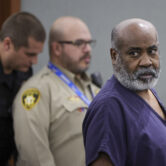PORTLAND, Ore. (CN) – A federal judge on Tuesday allowed prosecutors to list a reporter as a potential witness in the second trial over the occupation of Oregon’s Malheur National Wildlife Refuge, despite objections that the government waited to issue a subpoena until after the confirmation of U.S. Attorney General Jeff Sessions, who is more likely to take such steps than his predecessor.
The first trial ended in humiliation for the government with the acquittal of Ammon Bundy, his brother Ryan, and five other defendants on charges of conspiracy to stop refuge employees from doing their jobs.
Fourteen of the original 26 defendants pleaded guilty, and the government dropped charges against one.
Observers were surprised when the government announced plans to move ahead with a trial on the same charges against the remaining four defendants.
They may be using the same old charges, but prosecutors are betting on a new tool.
Before opening arguments on Tuesday, the parties argued over the government’s plan to subpoena a reporter regarding his coverage of the standoff.
John Sepulvado, a former reporter for Oregon Public Broadcasting, interviewed occupation leader Ryan Bundy for a piece that aired on Jan. 9, 2016.
In the interview, Ryan Bundy claimed more than 100 ranchers lost their land to make way for the refuge, and blamed the refuge for the charges that landed local ranchers Dwight and Steven Hammond in federal prison – a saga that initially sparked the occupation.
Ryan Bundy seemed to admit to the prosecution’s basic premise: that the occupation was meant to keep the refuge employees from working in order to prevent that sort of “government tyranny” from continuing.
“From this facility right here is where the charges came from to destroy the Hammonds,” he said in the interview. “It is destroying the lives and liberties and properties, and property rights anyway, of those around. It’s being facilitated from this office. So by being here, it puts a stop to that.”
Sepulvado then replied, “But the federal government workers are still working from home. They’re still telecommuting. I mean this is the space that they meet, but they’re still doing the same jobs.”
Ryan Bundy answered, “Well perhaps. This whole system isn’t perfected yet.”
And Ryan Bundy told Sepulvado that the occupiers needed the guns that hung from their hips in order for their political claims to be taken seriously.
“Why are the weapons necessary? Why not just do all this, but without the guns?” Sepulvado asked.
“Because of the lack of seriousness, okay?” Ryan Bundy answered.
“The guns make this serious?” Sepulvado asked.
Prosecutors tried to introduce the radio segment as evidence during the first trial. But defense attorneys successfully argued that it was unfair to use the version that aired, since Sepulvado could have edited it in a way that presented Bundy’s statements out of context. OPB declined to produce the raw, unedited version.
During that trial, U.S. District Judge Anna J. Brown ruled that the only way she would allow prosecutors to introduce the edited interview would be alongside testimony from Sepulvado, who could presumably answer questions about the context of Bundy’s statements.
Oregon’s shield law does not apply to the federal criminal trial.








